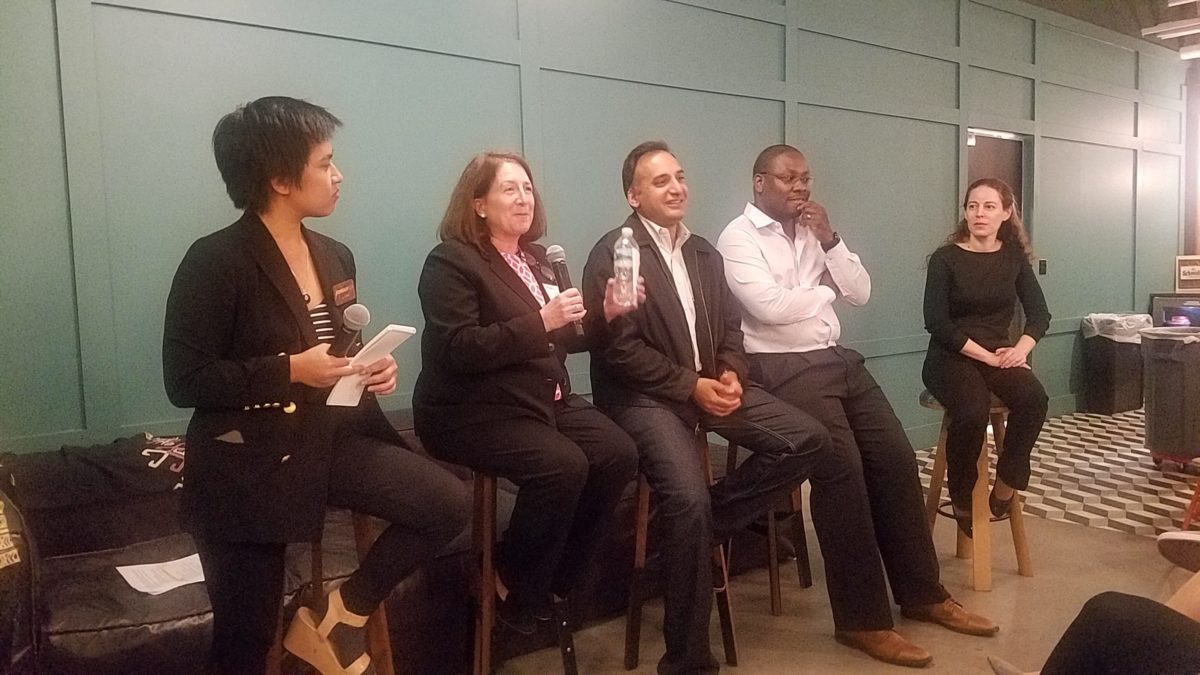Looking back on our coverage, looks like we’ve devoted quite a bit of digital ink to the subject of securing venture capital.
We told you how to attract angel investments, how to stand out to venture capitalists and how to get a firm like First Round Capital to notice you.
But this time, we bring lessons from a panel of investors on those times when things don’t go so well. Last week during FailFest (part of Philly Tech Week 2017 presented by Comcast), we sat down investors Omar Mencin, Gail Ball, Jon Gosier and Tali Hirsch to ask them about those failed pitches that didn’t get to a term sheet.
Hirsch started things off with her first pet peeve, eliciting nods of agreement from her fellow panel members:
1. Don’t read from the deck.
It’s a sign of passion and commitment for Saul Ewing’s Investor in Residence that founders know stats and facts by heart. And please, don’t scroll all the way back to the beginning of the slideshow to find answers. It’s a tell, Hirsch warned.
“Use the pitch deck as the lead, not the content in itself,” Hirsch said.
2. Don’t drown the VC in chatter.
Gosier said being able to stop the pitch and listen to questions is an all-important sign of confidence.
“Be concise,” Gosier said. “Don’t just keep talking. Wait for a signal from investors in the room.”
3. Don’t mess up the question round.
An all too familiar (and frustrating) scene was depicted by investor Ball, managing director for Chestnut Street Ventures.
“A polished presentation is given and then the person falls apart after the first question,” said Ball. “Don’t be afraid to say you don’t know the answer.”
4. Don’t get crazy with the projections.
Projection numbers in the pitch room are flimsy, as any entrepreneur and investor will tell you. They’re general estimations that, more often than not, are a quite different than the actual results.
For Ben Franklin’s Mencin, wildly unrealistic projections are a big let down. “When your projections exceed the market size, it’s not a good sign,” Mencin said.
The audience laughed.
5. Don’t stop trying.
Even if you made all of the above gaffes, Gosier said there’s hope still for entrepreneurs that don’t secure funding the first time around. He knows this first hand:
“We all can be wrong and investors can be wrong,” Gosier said. “It’s about being coachable and being able to pivot. Pitching matters, but you’re not auditioning for a part. At the end of the day, you want to be appealing for what investors are looking for. You can overcome those deficiencies.”
Hirsch also riffed on that “investors can be wrong” narrative. Failure, she said, is a subject VCs are well accustomed to.
“More often than not the money we spend doesn’t come back,” Hirsch said. “We do failure all the time.”







